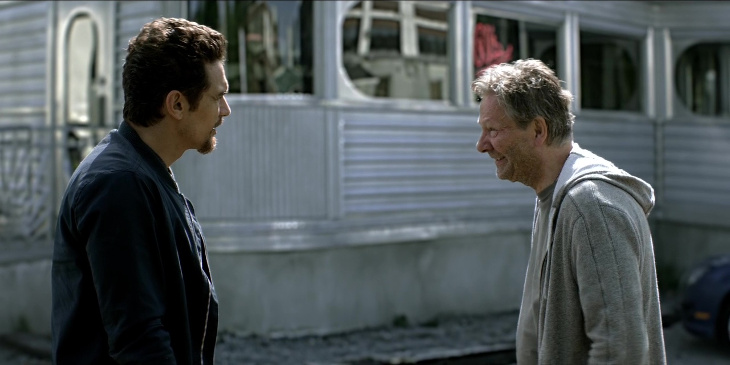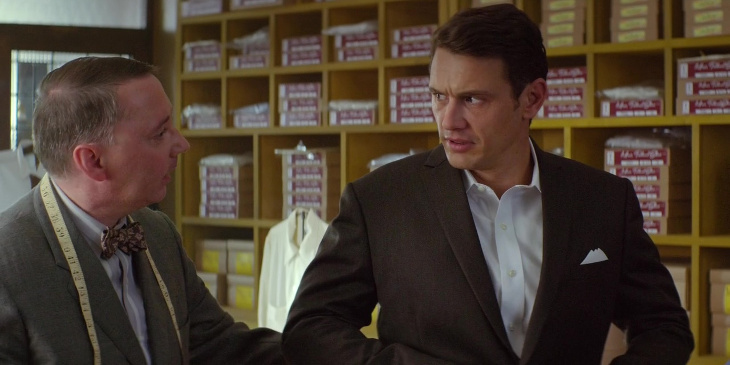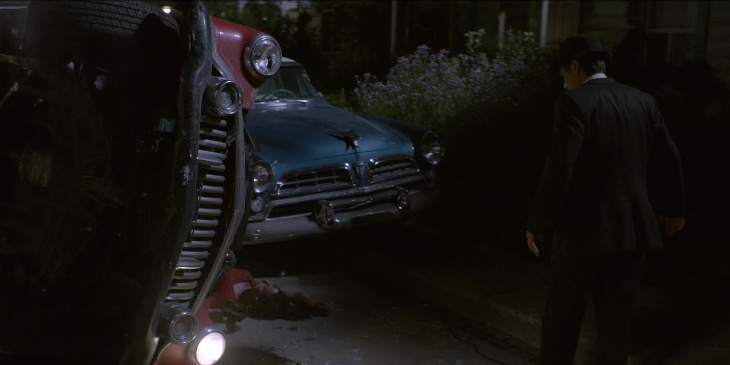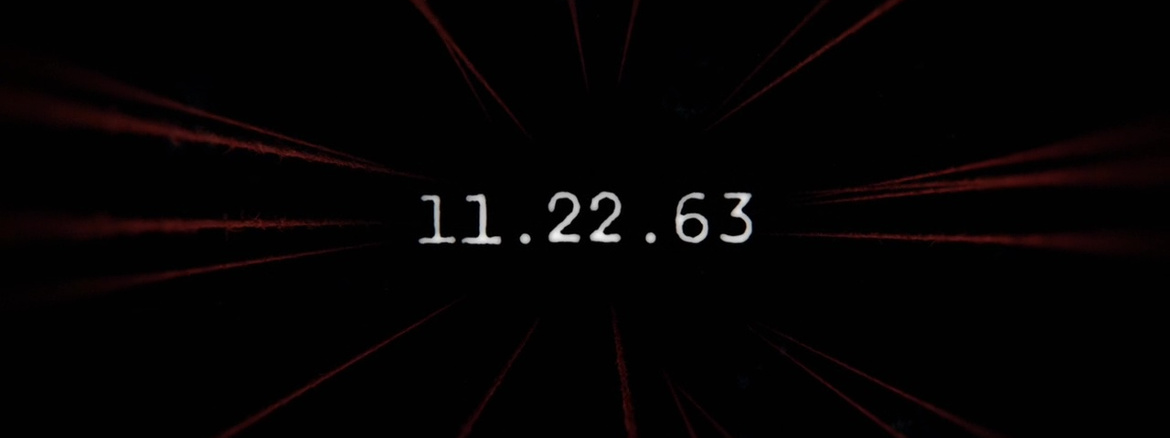
“Hard to find the right words, I know, but you go through there and it’s 1960.”
I’ll acknowledge that I went into the pilot of 11.22.63 with a strong sense of skepticism. Stephen King adaptations have covered an extremely broad range in terms of quality, and, given the fact that 11.22.63’s premise involves a time traveling closet, one could be forgiven for approaching this Hulu Original mini-series with a healthy dose of trepidation. So imagine my delight when I found that the premiere episode, The Rabbit Hole, is not only good but kinda great. It isn’t completely surprising that the series has promise. Some of King’s best adaptations came from his non-horror works, such as The Shawshank Redemption, The Green Mile, and Dolores Claiborne, but 11.22.63’s reliance on a rather bizarre narrative device while also attempting to present a moderately grounded thriller means that it has to maintain a precarious balancing act that those other titles did not. Fortunately, it is largely successful at maintaining that balance between supernatural thriller and conspiracy period piece even if there are some issues that arise from moderately questionable pacing.

The basic premise which was featured in many of the ads is that James Franco plays a writer and teacher named Jake Epping who is given the opportunity to travel through a portal that will bring him back in time to 1960. His friend, Al Templeton (Chris Cooper), wants him to use it to prevent the Kennedy Assassination as he believes that doing so will change history for the better, hence the titular date. Al had attempted to prevent the assassination himself, but he developed cancer after staying in the past for two years and thus was unable to reach 1963 on his own. The first episode largely follows the process by which Jake comes to learn about how the portal operates and becomes acclimatized to the past. The decision to cast Franco as the lead was a wise one since the episode has him going long stretches without really interacting with anyone, and the show relies heavily on Franco’s likability to carry those sections. It is fortunate that Franco is up to the task as, outside of the occasional flashback to Al briefing him on the timeline, the narrative once he gets to 1960 is focused very tightly on his actions. It is hard for me to think of a single scene that Jake was not a part of, and after an hour and twenty minutes, that singular focus can start to wear a bit thin, regardless of how charming the lead is.

The decision to make the episode run that long might be my biggest problem with this show, since it sometimes feels like it is already progressing a bit too slowly even though this is only the first episode. The pacing has a very gradual quality to it, and while the show is impressive in its presentation, I worry that interest may wane by the second or third episode. It would appear that the timeline itself has some form of sentient presence, and there are some moments of legitimate tension where it attempts to obstruct Jake from changing the proper progression of events, but those aren’t enough to fully counteract some of the duller elements of The Rabbit Hole. There are plenty of scenes that don’t appear to directly tie into anything, or that linger about a bit longer than is necessary, and we end up with a lot of instances of Jake simply observing things from afar. Strictly speaking, I liked this first episode a lot, but I worry that the aspects that I appreciated could potentially be drowned out by the pacing issues that have been known to plague Stephen King miniseries in the past. Still, this episode ends on a bit of a cliffhanger, so, at the very least, I will be returning to it next week to see how it progresses. If it can avoid the pitfalls that some of its brethren have fallen into in the past, then 11.22.63 might prove to be a truly great show, but, for the time being, I’m holding on to a little bit of that skepticism.
Before I wrap up, a few Notes and Nitpicks:
- I like the opening quite a bit, though it does feel slightly derivative of some other TV openings from the past few years, such as The Walking Dead, Sherlock, or Wayward Pines. Still, I like the visual of red thread linking everything together.
- I don’t know if the rest of the episodes will have the 81 minute runtime, but I honestly hope they don’t. This first episode felt too long as is, and I don’t know if I could cope with that on a weekly basis.
- The progression of time is, ironically, a little difficult to get a handle on in this first episode. While it was going on, I didn’t know if Jake had been in the past for days, weeks, or months. It wasn’t until the end that I was able to confirm that he had only been there for about 10 days.




Add comment